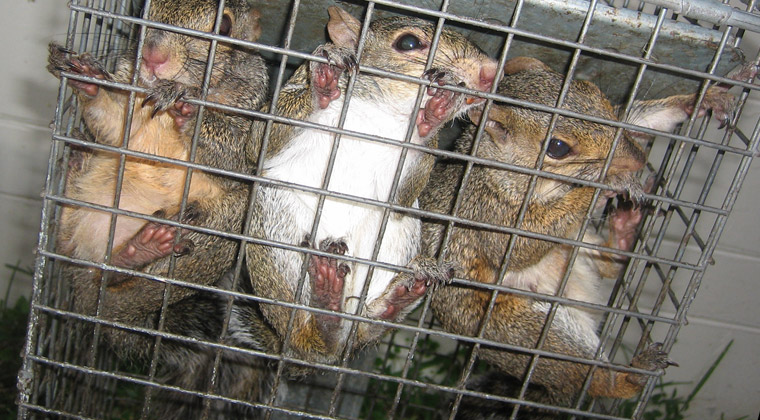-
info@aaanimalcontrol.com
Call us for help in your town
Humane Wildlife Education
Causes for rodent population growth and infestations
Need wildlife removal in your hometown? We service over 500 USA locations! Click here to hire us in your town and check prices - updated for year 2020.
As human beings, we like to think of ourselves as being so much more superior than any other animal on the planet. It is true that we have a superiority in many areas, but the truth is that we are animals as well. That means that many of the behaviors that we follow are similar to those that you would find with any other animal out there.

One such animal that human beings are more like then we like to admit is that of the rodent. Animals such as rats, mice, raccoons, rabbits, and others fall into this rodent family of animals, and have similar behaviors, some even similar to that of human beings. This is especially true in relation to how they populate an area and grow as a species.
You may find that in some areas of the country, maybe even around your home, that rats, mice, and other rodents can quickly grow in population. They can basically take over an area, becoming an infestation upon the land, which may make you wonder what causes rodent population growth and infestation?
The reason it was mentioned to you that these animals are still quite similar to human beings, is because this question can easily be answered if you consider what would cause human populations to increase in any area. The answer, when you think about it from this perspective, becomes a lot less complicated to answer.
Start with the fact that when there is a readily available supply of food and water for people to be able to get so that they can survive in that area, then more people are going to come there. This is true of rodents as well. In fact, rats have thrived in every area of the planet that human beings have gone to, primarily because they have lived off the food and water that humans discard every day. If there is food and water out there, then rodents are going to flock to that area to be able to improve their chances of survival.
Human beings need shelter, not only to protect them from the elements, but also to provide protection from predators and to help them to be able to provide security for their family. This is true of rodents as well. If you look at rats, for example, they frequently choose locations that afford them a place where the colony can grow rapidly and be protected from potential predators. This is why you often find them in such places as sewer systems, because most of the potential predators to them do not have access to this area. When they have an area that provides them with protection, then population growth is going to increase rapidly.
You also have to keep in mind that when these animals feel safer and have a readily available supply of food, then reproduction will occur at a higher rate. This is going to rapidly increase population numbers, and make an infestation a likely scenario.
For more information, you may want to click on one of these guides that I wrote:
How To Guide: Who should I hire? - What questions to ask, to look for, who NOT to hire.
How To Guide: do it yourself! - Advice on saving money by doing wildlife removal yourself.
Guide: How much does wildlife removal cost? - Analysis of wildlife control prices.
Animals in the attic - read about the common species.
Noises in the attic - how to identify critters by their sounds.


















